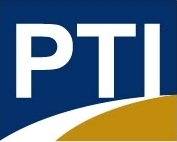
Overview
This course is designed to support fire protection technicians required to complete six-monthly and yearly inspections and test procedures to verify that hydrant systems function as intended.
The course involves working safely, conducting compliance tests, visually inspecting, identifying non-compliance defects, fulfilling mandatory reporting requirements, as well as isolating and resetting the hydrant system.
Duration: 4 hour workshop
Cost: $595 per person NOW $525 per person
Components: Face-to-face intensive training and assessment
Location: Perth
Pre-requisites: No pre-requisites
CPPFES2037 – Inspect and test fire hydrant systems Course Overview
This course supports fire protection technicians responsible for functional testing of water-based fire protection systems.
The course does not apply to water supply proving tests on hydrant systems, or inspection and testing functions associated with pressure-reducing equipment in high rise buildings, fire pumpset systems or water supply tanks.
Fire protection technicians are trained to operate within the scope of their defined roles and responsibilities and perform the inspections and testing as part of their work duties to verify that equipment functions as intended, according to work procedures and Australian standards.
The CPPFES2037 – Inspect and test fire hydrant systems is delivered as follows:
4 hour workshop comprised of face-to-face training with theory and practical assessments in a classroom setting. Throughout the workshop participants will be exposed to simulated workplace practical scenarios, preparing to conduct fire equipment inspection.
The fire protection training package has recently been updated and to meet the expansion of the assessment requirements for the unit of competency, we have included a workplace logbook to be completed post-course. Below is the list of additional items to be completed in the logbook:
- yearly inspection and test procedures on 14 fire hydrant systems installed across nine different sites
Additional training to help the participant meet the requirements of the course will be available. Participants will receive support during the course as needed. PTI also makes themselves available to the students for workplace support within the scope of training. There may be an extra cost associated.
CPPFES2037 – Inspect and test fire hydrant systems
Communication
Participants are required to speak and write in English along with good literacy and numeracy skills. Participants will need to be able to read and write detailed reports. The ability to communicate complex skills to other participants is a requirement to meet the course requirements.
Participants needing support will receive the needed help. Extra support may incur further costs to the participant.
Physical capacity
Have a good level of fitness to be able to conduct good manual handling techniques. You should be able to safely pick up 20kg and conduct 10 minutes of mild continuous exercise.
Drivers License
Have a valid or the equivalent of an Australian drivers license.
Policy
Notification of cancellation or transfer
All cancellations, transfers, or variations to face to face course bookings must be received in writing by emailing Client Services.
Cancellations – a student withdraws from a course.
| Minimum Notice Periods *where “working days” means Monday to Friday | |||
| Course Type | Full Refund of Course Fee | 50% Refund of Course Fee | No Refund of Course Fee |
| Half or full day courses | 2 working days | Not applicable | <2 working days |
| Longer courses (2+ days) | 7 working days | 4-6 working days | <3 working days |
| Online courses | If course not commenced | Not applicable | Once course commenced |
Transfers – a student changes to a different course date.
| Minimum Notice Periods *where “working days” means Monday to Friday | |||
| Course Type | No Charge | 50% Refund of Course Fee | 100% Charge of Course Fee |
| Half or full day courses | 2 working days | Not applicable | <2 working days |
| Longer courses (2+ days) | 7 working days | 4-6 working days | <3 working days |
Substitutions – a student is no longer able to attend and the employer sends another person instead.
An alternate learner may be substituted for a face-to-face course prior to the commencement of a course at no additional cost.
(Applies if there is no prerequisite online component)
Non-attendance
If a learner fails to attend a course, no refund will be payable. A voicemail message on PTI answering service, outside of business hours on the day before the course, is not accepted as a notification of cancellation.
If a learner is sick on the day of their course and can support this with a medical certificate, they will be transferred to an alternate date at no charge.
If the learner has failed to attend due to any other reason no refund will be payable, but a course transfer may be granted at the discretion of the Administration Manager.
Course Cancellation by PTI
In the event that PTI, or any third party delivering training and assessment on its behalf, closes, cancels, or ceases to deliver for any reason, a course or part of a course that a learner is enrolled in, a refund of fees paid for services not provided will be given to the learner by PTI. Learners who have already been assessed as competent for some units will be issued a Statement of Attainment for these units and the costs of issuing the Statement(s), including training, assessment and administration fees, will be deducted from the refund total.
PTI also reserves the right to cancel any course if insufficient registrations are received. Should this occur, those who registered will be notified and their course fees refunded in full or they will be transferred to another course. PTI will not be liable for any claims arising from course cancellation.
Exceptional Circumstances
PTI aims to be flexible and accommodating and recognises that in some cases there are exceptional circumstances where a charge may not be incurred. This discretion applies to cancellations, transfers, and non-attendance, as listed above. Exceptional circumstances could include serious illness or injury, death in the family.
